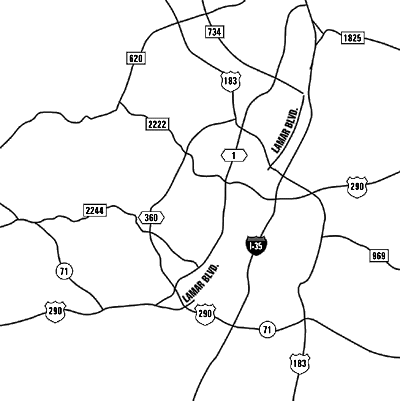King of the Roads
Fri., April 9, 1999
At worst, TxDOT has been accused of insinuating itself — and its road-widening, automobile-promoting ways — on defenseless locals who might like to see a more creative solution to traffic problems than laying more asphalt. A recent example is the Bee Caves Road debate, where many West Austin residents continue to oppose the agency's plans to widen Bee Caves, considered the main drag for West Lake Hills and Rollingwood.
Since 1991, when federal legislation called for the establishment of Metropolitan Planning Organizations (MPOs) to give local citizens and elected officials a more formal role in deciding how federal transportation dollars are spent, state and local governments have worked together in planning projects. The Austin-area MPO is CAMPO, the Capital Area Metropolitan Planning Organization (formerly the Austin Transportation Study, or ATS). Ed Collins, an urban transportation administrator who works for both TxDOT and CAMPO, said it takes approval from both groups to get a project done. At best, the state-local relationship has resulted in some massive projects, such as the expansion of US 183 a few years back. And Texas Transportation Commissioners proved compliant partners when the city offered matching funds to speed up improvements to the I-35/ US 71 interchange, already snarled and guaranteed to become an even greater challenge as a main thoroughfare to the soon-to-open Austin-Bergstrom International Airport. Even in the Bee Caves fight, said Collins, TxDOT has tried to be responsive to locals' concerns (although not all the locals would agree) and he notes that the Bee Caves expansion was shelved once before — about 10 years ago — due to opposition from residents.
On that score, Austin residents are likely to be testing TxDOT's responsiveness on a number of projects designed to alleviate traffic congestion on I-35 and US 183. Which could mean we'll be in for some serious tension headaches during the "construction management" process. TxDOT provides a list of upcoming road projects on its website: http://www.dot.state.tx.us — Jenny Staff

Got something to say on the subject? Send a letter to the editor.






